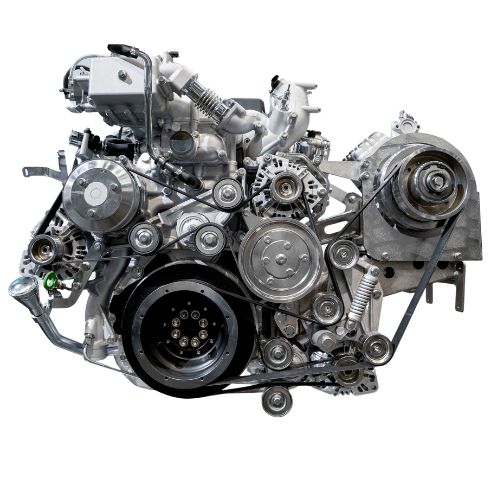N52B30O1 Used BMW Engine
Large Network Of Engine Suppliers
Compare Quotes
Save Money
Save Time
N52B30O1 Used BMW Engine For Sale
- Engine Size (liters) 3
- “# of Cylinders
- and layout” I6
- # of Valves 24
- Camshaft and Valve Timing Valvetronic
- HP Rating 255
- Torque Rating 221
- Active Years 2006-2012
- Example Models E90 330i, E60 528i, Z4 3.0si
- Features High-output N52KP
Best Engine Replacement Procedure
- Swap the engine’s oil, fuel and oil filters, and coolant.
- Install new engine and external coolers if existing.
- Cleanse the cooling system thoroughly, then replace the water pump.
- Renew necessary hoses and belts.
- Install a new timing belt, spark plugs, and wires.
- Replace essential gaskets and seals, focusing on the oil pan, front, and rear main seals.
- Clear the vehicle’s computer codes before engine installation.
- Ensure the replacement engine matches the original specifications.
- Transfer exhaust manifolds, mounts, distributor, and sensors from the old engine.
- Disable fuel and ignition before ignition to prime the oil.
- Ensure no plugs or tape remain on the engine before installation.
7 Common Mistakes to AVOID!
- Not resetting the vehicle’s computer codes before installation.
- Skipping the step of adding engine oil before the first startup.
- Forgetting to deactivate the fuel and ignition systems, essential for priming the oil.
- Ignoring the replacement of the oil cooler or the radiator’s integrated oil cooler.
- Overlooking the cleaning of the radiator and checking the operation of the cooling fans.
- Not swapping out the flywheel and its securing bolts.
- Trying to initiate the engine’s first run without proper priming.
Warranty Info
Review our Warranty, Return & Exchange policies before ordering. Standard Warranty: 30 days parts replacement. Extended Warranty: Optional 90 days. No labor costs covered. Defective parts may be replaced or refunded. Read more.
